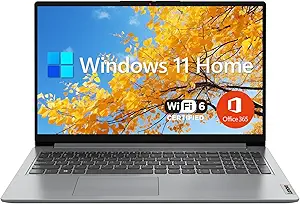The Ultimate Showdown
Lenovo vs HP Laptops - Deciphering the Pioneers of Performance and Versatility
In the fiercely competitive world of laptop computing, two juggernauts, Lenovo and HP, stand as beacons of innovation and reliability. With their unwavering dedication to pushing the boundaries of technology, these brands have earned the respect and loyalty of users worldwide. As we delve into this comparison, we embark on a journey to unravel the intricacies of Lenovo and HP laptops, uncovering the unique features and strengths that define each. Join us as we navigate through this clash of tech titans to determine the ultimate champion.
Key Features Comparison
Product Selection
HP and Lenovo are two of the leading brands in the laptop market, each offering a diverse range of products to cater to different consumer needs. HP's product selection is quite extensive, with their popular lines including the Pavilion for everyday use, Envy for premium users, Spectre for high-end users, and Omen for gamers. Each series comes with the latest technologies such as Intel's 10th or 11th generation processors, AMD Ryzen processors, NVIDIA or AMD graphics, and options for high-resolution displays, touch screens, and 2-in-1 designs. The downside is that HP's product selection can be overwhelming, and the design and build quality can vary significantly between different series and models. On the other hand, Lenovo's product selection is equally diverse but more streamlined. Their key product lines include the ThinkPad for business users, IdeaPad for everyday use, Yoga for premium 2-in-1 devices, and Legion for gamers. Lenovo is known for the consistent build quality across their product lines, and they also offer the latest technologies such as Intel's 10th or 11th generation processors, AMD Ryzen processors, NVIDIA or AMD graphics, and options for high-resolution displays, touch screens, and 2-in-1 designs. However, Lenovo's product selection may not be as exciting or innovative as some of the other brands, and their premium products can be quite expensive. In comparison to other brands, both HP and Lenovo offer a wider product selection, but the choice between the two often comes down to personal preference and specific needs.
Reputation
HP and Lenovo are both reputable brands in the laptop industry, known for their innovative technologies and quality products. HP, with its long-standing history, has a solid reputation for delivering reliable and durable laptops. They have consistently introduced new technologies such as the HP Spectre Folio, which is crafted from 100% genuine leather and is the world's first leather convertible PC. However, some users have reported issues with customer service and software stability, which can impact the overall reputation of the brand. On the other hand, Lenovo is known for its robust business laptops, especially the ThinkPad series which is highly praised for its durability, excellent keyboard, and superior performance. Lenovo has also been pushing the envelope with its Yoga series, featuring flexible 2-in-1 designs and cutting-edge features like Dolby Vision and Atmos Speaker System. However, some Lenovo laptops have been criticized for their subpar battery life and heavy weight. Despite these minor setbacks, both HP and Lenovo maintain strong reputations in the market, each with their unique strengths and weaknesses. Comparatively, other brands such as Dell and Asus also have their share of reputation in the market, but HP and Lenovo continue to be top choices for many consumers due to their consistent performance and innovation.
Display
When it comes to the display aspect of laptops, both HP and Lenovo have a lot to offer. HP laptops, especially in their premium range like the HP Spectre x360, come with a 4K AMOLED display that offers vibrant colors and sharp images. The display is bright and has excellent viewing angles, making it a great choice for multimedia consumption and professional photo or video editing. However, some users have reported that the glossy finish on the screen can cause reflections in brightly lit environments. On the other hand, Lenovo laptops, particularly in their ThinkPad and Yoga series, also offer impressive display features. Many of these models come with a Full HD IPS display that provides accurate colors and wide viewing angles. The anti-glare finish on most Lenovo laptop screens is a significant advantage, particularly for users who work in bright environments. However, the color vibrancy and contrast might not be as high as in HP laptops. For instance, the Lenovo ThinkPad X1 Carbon has a 1080p display, but it doesn't quite match the color gamut and brightness of the HP Spectre x360's 4K display. In terms of display technologies, both brands are incorporating the latest advancements such as touch screen capabilities, stylus support, and even foldable screens in some models. However, the choice between HP and Lenovo would largely depend on individual user requirements. For instance, a graphic designer might prefer the color accuracy of HP's 4K AMOLED display, while a business professional might appreciate the anti-glare finish of Lenovo's screens.
Conclusion
In the battle of Lenovo vs. HP laptops, both brands offer compelling options tailored to different preferences and priorities. Lenovo excels in reliability, performance, and professional-grade features, making it the ideal choice for professionals and power users. HP, on the other hand, shines in design, affordability, and versatility, appealing to users who value style and value for money. Ultimately, the choice between Lenovo and HP laptops depends on individual preferences and requirements. Whether it's reliability and performance or design and affordability, both Lenovo and HP continue to innovate and inspire, driving the evolution of laptop computing. So, whether you're team Lenovo or team HP, rest assured that you're in capable hands with these industry giants leading the way into the future of technology.


















